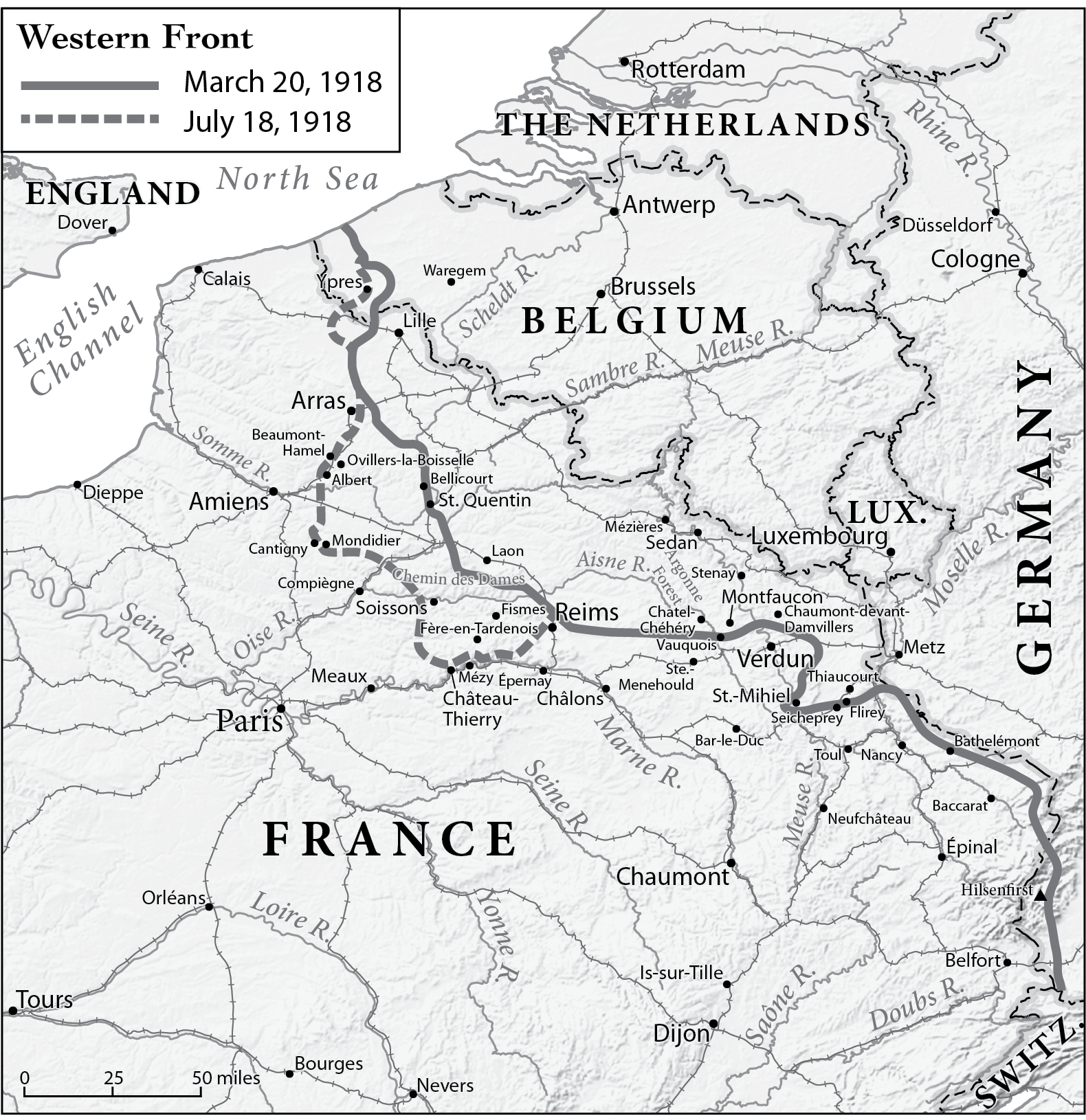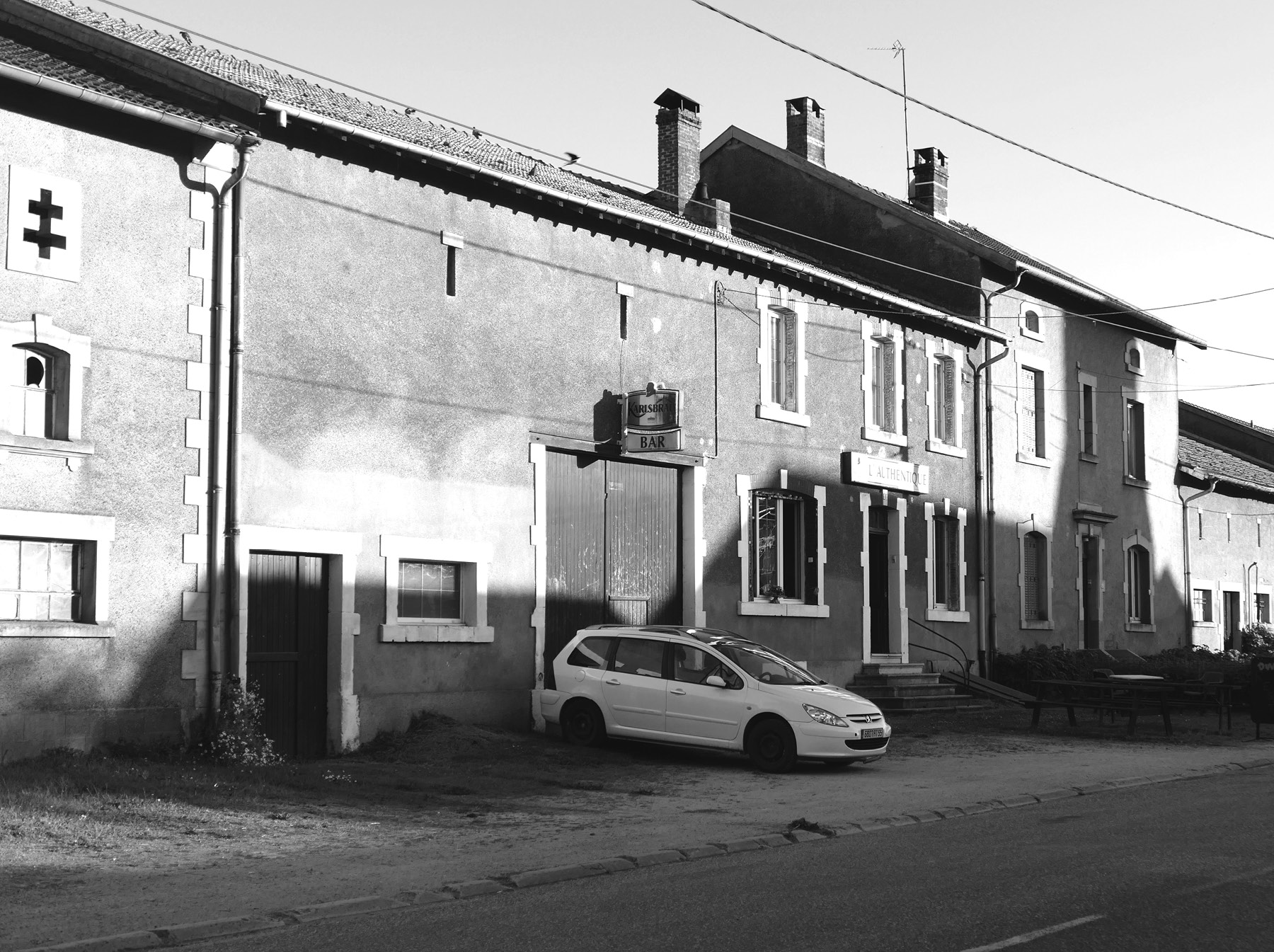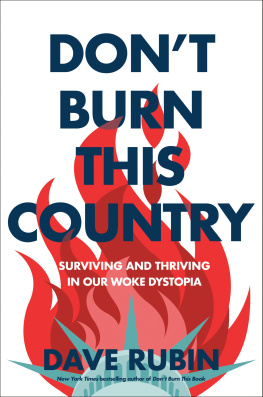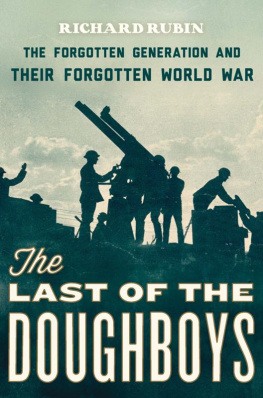Back Over There
One American Time-Traveler, 100 Years Since the Great War, 500 Miles of Battle-Scarred French Countryside, and Too Many Trenches, Shells, Legends and Ghosts to Count
Richard Rubin

St. Martins Press
New York
Thank you for buying this St. Martins Press ebook.
To receive special offers, bonus content, and info on new releases and other great reads, sign up for our newsletters.

Or visit us online at us.macmillan.com/newslettersignup
For email updates on the author, click here.
The author and publisher have provided this e-book to you for your personal use only. You may not make this e-book publicly available in any way. Copyright infringement is against the law. If you believe the copy of this e-book you are reading infringes on the authors copyright, please notify the publisher at: us.macmillanusa.com/piracy .
To memory,
and those who keep it
And to M.A.L.,
one tough little

Courtesy of National Park Service, Cultural Resource GIS Facility
Over there,
over there,
Send the word, send the word,
over there,
That the Yanks are coming,
the Yanks are coming,
The drums rum-tumming evry where.
So prepare,
say a prayr,
Send the word, send the word,
to beware,
Well be over,
were coming over,
And we wont come back
till its over over there.
George M. Cohan, Over There, 1917

France.
I was lost.
Really lost.
Now, Id been lost before. Many times. In just about every way one can be. And yet, while lost is, in my experience, a state with infinite permutations, none is quite as profound as creeping forward slowly in a rental car through a labyrinth of narrow and overgrown tractor trails lined with tall grass and weeds, deep in a country where you dont speak the language very well, which last fact doesnt really matter anyway because you havent seen another human being in a half hour, and havent had a cell signal for even longer than that.
Yes, thats a First World Problem; but youre not supposed to be able to get lost in the First World anymore, what with excellent signage and detailed road maps and GPS. And so, because youve become so dependent upon these conveniences, youre really in bad shape when, one by one, they fail you. The place youre trying to findIll just drop the pretense and change that to the place I was trying to find wasnt on a road, at least not a real one. It certainly wasnt on a map. And if it had coordinates, which I am told everyplace does, I had no idea what they were. I doubted anyone had ever even written them down.
Worse yet was the fact that Id already been to this place I was now trying to find, and had gotten there all by myself. Only a few years earlier. Five years, to be precise, in 2009. Under ordinary circumstances I might start wondering what this said about my state of mental fitness. But I didnt have time for that right then, because I was really... well, you know.
In my defense: I had only been there once, and five years is a fairly long time to remember directions to a place in the middle of nowhere and thousands of miles away from home. And this place wasnt in, say, Oregon or Alberta. It was in the other direction, across an ocean, in France. In northern France. Northeastern France. A part of northeastern France called Lorraine.
Poor Lorraine: Outside of France, its scarcely regarded as its own entity. People pair it with the neighboring region of Alsace as inextricably as they pair Q with U. Never mind that theyre thoroughly distinct in culture, landscape, even language; never mind that Lorraine is almost three times the size of Alsace, with a half-million more residents. Among the French, Lorraines natives say, they are regarded as paysans. Peasants. Hicks. They will tell you this with pride. Im not sure why, frankly. I suspect it may be that they like being underestimated.
The Germans certainly underestimated Lorraine. If you know anything at all about the place, you know that the Germans annexed it, along with Alsace, after the Franco-Prussian War of 187071. Except they didnt, really. Germany did annex almost all of Alsace back then, but they only took about a quarter of Lorraine, which was all they wanted of it. The part of it where I was lostthe Germans didnt take that. If they had, the roads here would probably be better today. By the time they did take this part, in 1914, they were too busy trying to take the rest of France to undertake a major infrastructure project like building new roads. There would be plenty of time for that after France surrendered. But here again, the Germans underestimated Lorraine, because while they took it fairly easily in 1914, it cost them hundreds of thousands of lives over the next few years to hold it. By 1918, they finally seemed to appreciate the place, clinging to it bitterly, desperately, killing and dying in great numbers for every trench, every yard of blasted soil. It was their last line of defense.
They never did get around to improving the roads, though. Perhaps they were as vexed as I was by the French system of naming their towns and villages. Its not enough, in many cases, to give a place a simple one-word name: You have to modify it, it seems, with some sort of explanation of where it is. Dun-sur-Meuse: Dun on the Meuse, a river. Gesnes-en-Argonne: Gesnes in the Argonne, a forest. Saint-Benot-en-Wovre: Saint Benot on the Wovre, a plain. Braye-en-Laonnois: Braye in the vicinity of Laon, a city. Nanteuil-la-Fosse: Nanteuil the pit, because its near a large chalk mine. (Im not sure how the locals feel about that name.) This, of course, enables the French to re-use town names again and again, sometimes without even putting much distance between them. Romagne-sous-les-Ctes, or Romagne below the hills, is only about forty minutes or so from Romagne-sous-Montfaucon, Romagne below Montfaucon, or Mount Falcon. Both were ancient Roman sites, and wanted to acknowledge this distinction in the most direct way possible; with a little elaboration, no one had to flip a coin to see who got to use Romagne and who had to go look for another name. And you can see why locals might want to commemorate the Romans: Among other things, they built good roads. Some are still among the better ones in the area.
The day I got really lost was a Sunday in June. I set out late that afternoon from Verdun for Ville-devant-Chaumont, which translates as the village before Chaumont (not, if you think about it, a big improvement over Nanteuil the pit). And theres even less to the place than its name suggestsa handful of houses and garages for farm equipment, thats it. But it was, as I remembered, the place to pick up a certain tractor road that would lead me to the place I was looking for. Now, its true that I am essentially an urban creature, having been born in New York and lived most of my life there and in other cities, but when I say tractor road, I do not mean a dirt road that is more or less the same as a regular road but for the fact that it is not paved. I mean a road that is really only meant for a tractor, or some other piece of self-propelled and extremely sturdy farm equipment. These are not roads that were built, or even laid out; theyre more like trails, paths formed by farmers who had to get their machinery someplace where there were no roads. What were talking about here is two parallel dirt ruts, not much wider than a single passenger car, surrounded on either side by brambles, grain, or very tall grass. The dirt ruts have potholes in them, and a lot of rocks, too, most large, many partially buried and fixed in place, some quite sharp. In between the ruts there is grass, often tall, almost always hiding more large rocks. Not a place you would take a car you cared anything about, which includes rental cars, especially if youre not quite sure what the extra insurance you think you took out at the rental car place actually covers. I drove on many more of these tractor roads than I should have, but in Lorrainealong most of the Great Wars Western Front, really, but especially in Lorrainemuch of what you want to see, if you want to see where things actually happened in that war, can only be accessed by such... well, lets just call them thoroughfares.














